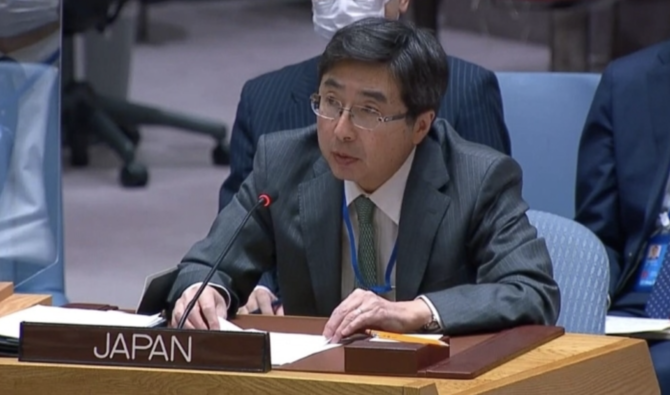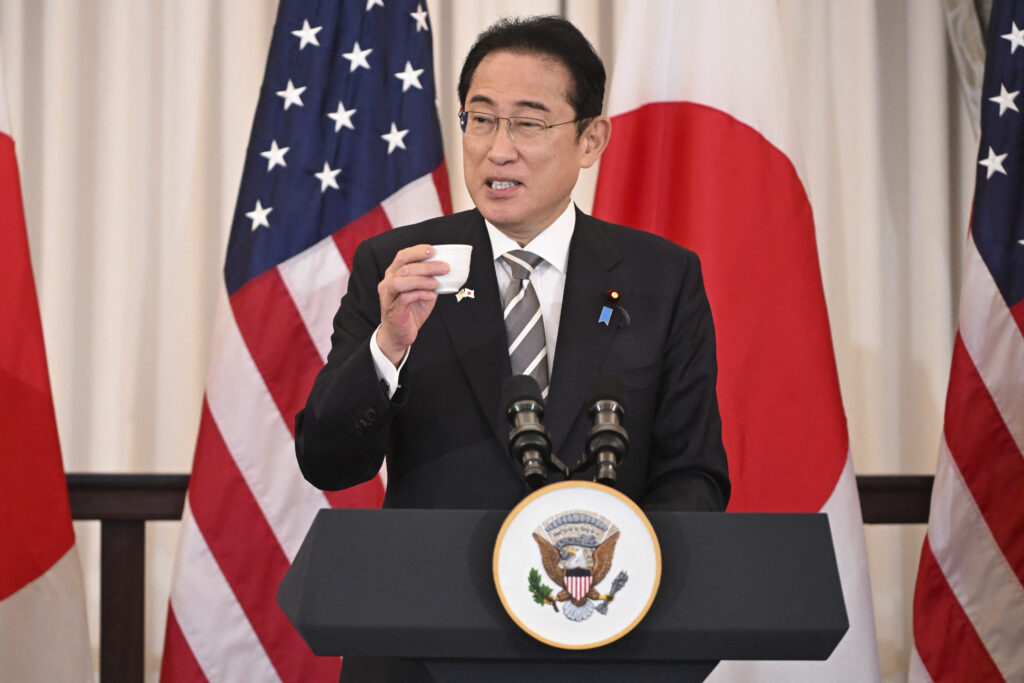NEW YORK CITY: The UN’s increasingly fragile cross-border mechanism for delivering aid to Syria is set to expire on Monday, and the UN Security Council is due to vote on a resolution to renew its mandate.
Diplomats have expressed fears that Russia, an ally of the Syrian regime, will use its power of veto to force the closure of the Bab Al-Hawa crossing on the border with Turkey, the last remaining UN-facilitated aid gateway to Syria.
Japan holds the rotating presidency of the Security Council this month. Ishikane Kimihiro, the country’s permanent representative to the UN, told Arab News he is determined to ensure the renewal resolution is adopted.
He highlighted the “intensive discussions” that have taken place and said “a lot of work” has been done, especially on the part of council members Ireland and Norway, who are the “penholders” leading the negotiations and drafting of resolutions relating to humanitarian efforts in Syria.
“The humanitarian situation in Syria is deteriorating,” said Ishikane. The conditions under which the 4.4 million people living in the opposition-held northwest of the country, who rely on foreign aid for their survival, are particularly alarming, he added.
“We definitely need to adopt the resolution which will extend the current humanitarian cross-border operations, and people are working on that,” Ishikane said.
“I am really hoping — and not just hoping, I am determined — to make it happen. This is a matter of life and death for so many people. So apart from any political divergences, this is something we need to move ahead. (This) is my determination, which I can share with you today.”
On Tuesday, the heads of several major UN agencies urged members of the Security Council to extend the cross-border agreement, warning that failure to renew Resolution 2642 would have “catastrophic” consequences for millions in northwestern Syria desperate for aid at the height of winter and as a serious cholera outbreak continues to rage.
The statement was issued jointly by the heads of the UN Office for the Coordination of Humanitarian Affairs, the International Organization for Migration, UN Children’s Fund, the World Food Program, the World Health Organization, UN Population Fund, and UN Refugee Agency.
They said that “(without) UN cross-border operations, millions of people, especially those displaced for years and multiple times, will not have access to food and shelter; to help in coping with harsh winter conditions; to the surveillance, treatment and testing capacities needed to contain cholera; to safe water; and to protection from gender-based violence”.
Last year, aid deliveries that crossed the border from Turkiye into Syria reached an average of 2.7 million people every month, the heads of the agencies said.
“We were also able to bolster assistance within Syria from Government-controlled areas across front lines into the country’s northwest, delivering food, health, education and other supplies for thousands of people in need,” they added.
“We are determined to maintain and expand these deliveries, and we call on all stakeholders for unhindered, sustained and predictable humanitarian access to northwest Syria from Government-controlled areas.”
While they are proving effective, these cross-lines deliveries cannot match the scale and scope of the cross-border operations that are needed, which are, and will continue to be, “indispensable,” they added.
The cross-border mechanism was created in 2014 to allow the delivery of UN aid directly to opposition-held areas in Syria.
International humanitarian law requires all aid deliveries to a country to go through the host government. However, Syrian President Bashar Assad’s tactic of using deliveries of humanitarian aid as a weapon of war prompted the Security Council to approve the use of four border crossings for the direct delivery of aid, one from Jordan, one from Iraq, and two from Turkiye. Only the one at Bab Al-Hawa remains open.






















